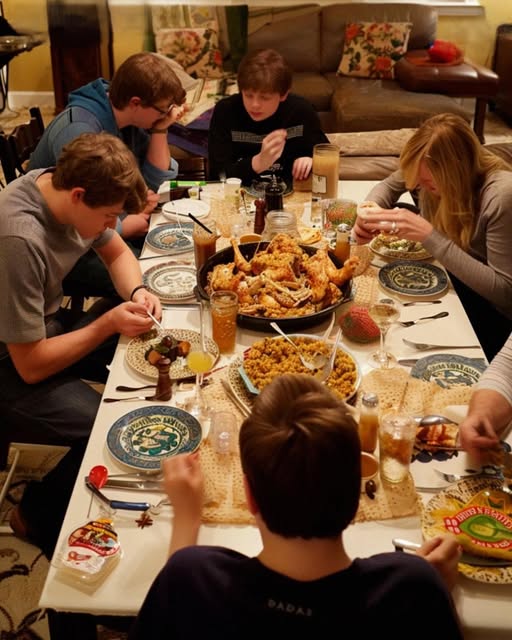Once a month, my family gathered for dinner—a tradition started by my grandmother, who believed shared meals kept families close. When I got married, I hoped Megan would feel that same warmth. She offered to cook, eager to contribute, but her efforts were met with cruel criticism. My sister called her food “bland,” my brother mocked it, and my mother promised to “send a real recipe.” Megan smiled through it, only to cry later in the kitchen. I should have ended the tradition right then—but instead, I convinced her to try again.
She poured her heart into another meal, this time using my family’s favorite dishes. The result? More humiliation. When I heard my mom mutter, “She’s not even trying,” I snapped. I defended Megan, but it was clear: their cruelty wasn’t about the food—it was about her. So, we tested a theory. She cooked, but I claimed the credit. Suddenly, everything was “delicious,” “perfect,” “the best I’d ever made.” Megan didn’t cry this time. She just nodded, quietly confirming what we both suspected.
That night, I told her we were done. No more hosting, no more dinners. My family called it an overreaction. But my sister Gloria confirmed the truth: they had never accepted Megan. Their minds were made up from day one. It wasn’t about seasoning—it was about exclusion. So we made our own family rituals. Pancakes in pajamas. Friends who bring kindness and leave with leftovers. A home filled with love, not judgment.
Sometimes I think of my grandmother, who believed food brought people together. But somewhere along the line, my mother turned the table into a place of judgment. If she ever wants to return to love, our door is open—but never at Megan’s expense. I’ve chosen my wife, her joy, and our peace. And between a family tradition and the woman who dances beside me while the dishes dry, there’s no contest.




